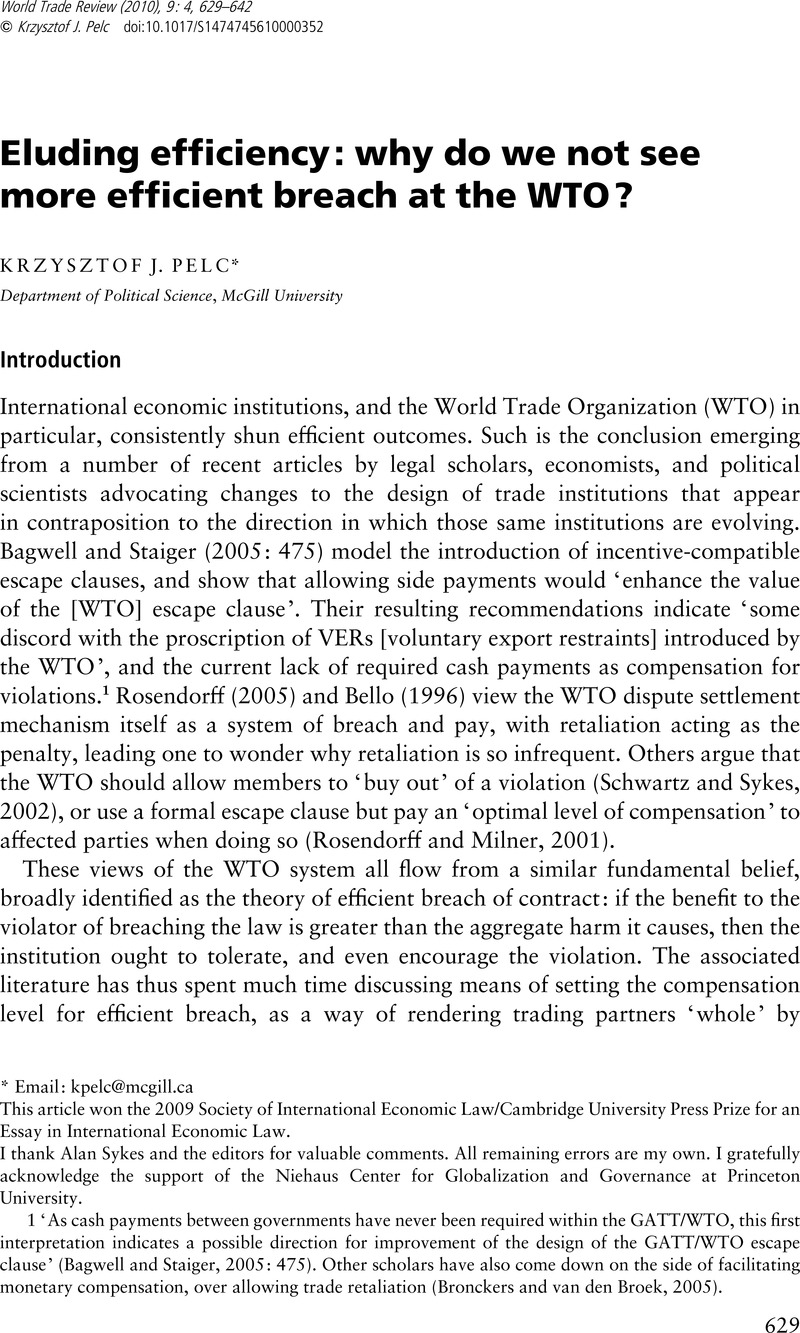Crossref Citations
This article has been cited by the following publications. This list is generated based on data provided by Crossref.
Zimmermann, Claus D.
2012.
Strengthening the WTO by replacing trade retaliation with stronger informal remedies?.
Journal of International Trade Law and Policy,
Vol. 11,
Issue. 1,
p.
82.
Cepaluni, Gabriel
Galdino, Manoel
and
Oliveira, Amâncio Jorge de
2012.
The Bigger, the Better: Coalitions in the GATT/WTO.
Brazilian Political Science Review,
Vol. 6,
Issue. 2,
p.
28.
Pelc, Krzysztof
2012.
Googling the WTO: What Search Engine Data Tell Us About the Political Economy of Institutions.
SSRN Electronic Journal,
Pelc, Krzysztof J.
2013.
Googling the WTO: What Search-Engine Data Tell Us About the Political Economy of Institutions.
International Organization,
Vol. 67,
Issue. 3,
p.
629.
Johns, Leslie
and
Pelc, Krzysztof J.
2014.
Who Gets to Be In the Room? Manipulating Participation in WTO Disputes.
International Organization,
Vol. 68,
Issue. 3,
p.
663.
DE BIÈVRE, DIRK
and
POLETTI, ARLO
2015.
Judicial Politics in International Trade Relations: Introduction to the Special Issue.
World Trade Review,
Vol. 14,
Issue. S1,
p.
S1.
DeRemer, David
and
Ortino, Federico
2018.
Getting Your Ducks in a Row: The Case for More Inclusive Renegotiations in EU – Poultry Meat (China).
SSRN Electronic Journal ,
Jovanović, Miodrag A.
2019.
The Nature of International Law.
DEREMER, DAVID R.
and
ORTINO, FEDERICO
2019.
Getting Your Ducks in a Row: The Case for More Inclusive Renegotiations inEU–Poultry Meat (China).
World Trade Review,
Vol. 18,
Issue. 2,
p.
309.
Wellhausen, Rachel L.
2019.
International Investment Law and Foreign Direct Reinvestment.
International Organization,
Vol. 73,
Issue. 4,
p.
839.



